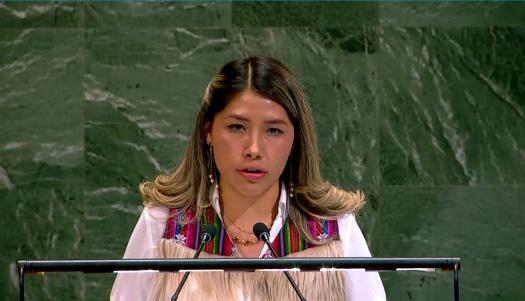Partnerships key in creating jobs for youth in post-conflict nationsmartes, 05 junio 2012  United Nations officials today stressed the need for partnerships across governments, the private sector and civil society to urgently tackle the challenge of job creation in post-conflict countries, especially for young people, who make up the bulk of these populations. “Job creation, especially for young people, in all post-conflict countries is an essential part of peacebuilding and more importantly, conflict prevention or relapsing into conflicts,” the Chairman of the UN Peacebuilding Commission, Abulkalam Abdul Mome. He was addressing a joint event at UN Headquarters by the Commission and the Economic and Social Council (ECOSOC), on the topic Partnerships for Job Creation for Young People in Countries Emerging from Conflict. The Commission was set up in 2005 to help post-conflict countries avoid slipping back into war and chaos by providing strategic advice and harnessing expertise and financing from around the world to support recovery projects. It currently has six post-conflict countries on its agenda: Burundi, the Central African Republic, Guinea, Guinea-Bissau, Liberia and Sierra Leone. Mr. Momen said that post-conflict countries, including those on the Commission’s agenda, face enormous challenges in providing economic and social opportunities to their population, especially to their youth, which constitute a very significant part of their population. Youth employment features prominently in the peacebuilding priorities adopted between the Commission and the countries on its agenda, he noted. However, creating a sufficient number of jobs to employ an “otherwise idle and poorly-trained work force” has proven arduous, especially in countries emerging from prolonged conflict or instability, in which the labour market – supply and demand for workers – may have seriously been damaged. “Prolonged conflict and instability leave a generation of individuals without proper quality education and thus difficult to be employed or motivated to be successful entrepreneurs,” Mr. Momen said. “Economic activities once shut down for prolonged periods take time to re-open and when they do try to open, capital is hard to come across, more so these days of one after another financial crises.” “All these considerations underline the need for partnerships and proactive efforts to promote job creation,” he stated, adding that governments, development partners, the public and private sectors, regional and international financial institutions, business and the non-governmental organization sectors all have an important role to play. In her remarks to the meeting, Deputy Secretary-General Asha-Rose Migiro said that the international community is increasingly recognizing the need to focus on job creation soon after conflict ends. “Later is often too late. Frustration boils over. Countries relapse into violence,” she stated. “Quite simply, we need to do a better job in addressing employment needs in a rapid and sustainable manner. Short-term interventions can make a quick, visible dent on unemployment.” The role of the private sector is crucial, she pointed out, noting that policies should encourage apprenticeships and entrepreneurship mentoring programmes. Private employers can also help ensure that training policies match market needs and facilitate youth access to markets, capital and networks. Young entrepreneurs, in particular, would benefit from less cumbersome administrative procedures to start new businesses and engage with the formal sector. “By joining our efforts, the United Nations, international financial institutions, the private sector, NGOs, and foundations can make a real difference in expanding opportunity and building lasting peace in countries emerging from conflict,” Ms. Migiro stated. She added that, in many parts of the world, young people lack education, experience, training and skills. “But the challenges are compounded in post-conflict and fragile countries that often suffer from weak institutions, poor investment and crumbling infrastructure,” she noted. In his comments, the President of ECOSOC, Miloš Koterec, said that while the majority of young people do not get involved in violence, unemployment and underemployment can cause conflict or lead to youth involvement in criminal activities – such as the drugs trade, armed groups and other illegal trade – that offer livelihood opportunities. “The consequences for countries still emerging from conflict are severe. For this reason, we need to have a sense of urgency,” he stated. Mr. Koterec added that experience has shown that successful and innovative youth employment schemes typically share several common features: they are well-crafted to the needs and challenges of the local community; they promote practices rooted in firm, empirical evidence; and they are “scalable” – easily copied elsewhere. Source: UN News Centre
Posted in : Youth |
The United Nations will commemorate the 2025 International Day of Persons with Disabilities (IDPD) on Wednesday, 3 December 2025, with a global virtual event at the UN Headquarters in New York, from 10 to 11:30am (EST) under the theme “Fostering…
 Welcome to the United Nations
Welcome to the United Nations


